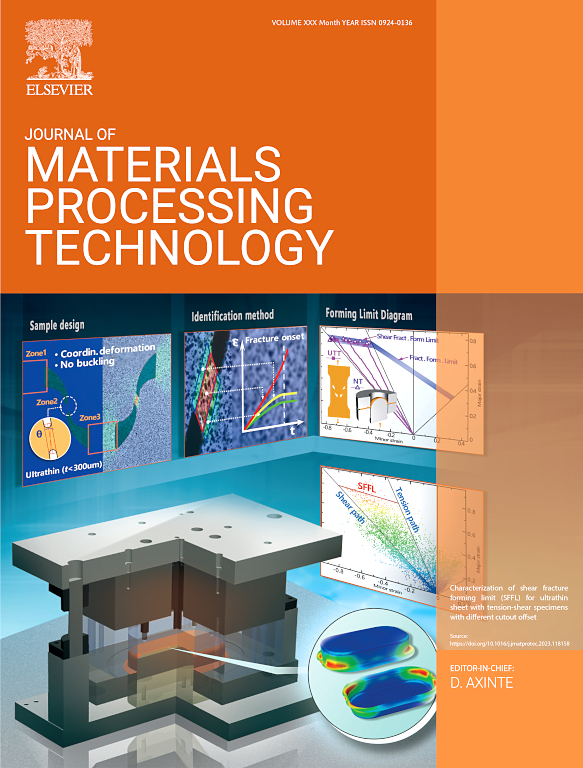Stress interaction analysis and mitigation in multi-process bellows manufacturing using continuous finite element simulation
IF 6.7
2区 材料科学
Q1 ENGINEERING, INDUSTRIAL
Journal of Materials Processing Technology
Pub Date : 2025-03-26
DOI:10.1016/j.jmatprotec.2025.118826
引用次数: 0
Abstract
A major challenge in the bellows manufacturing process is the accumulation of complex stresses due to the multi-step forming and welding processes, which can significantly impact the bellows’ service life under varying and complex thermal/mechanical loads in engine fuel systems. This research focuses on the full process chain for 1Cr18Ni9Ti bellows and innovatively conducts a multi-process direct finite element analysis of the full process chain, including hydraulic forming (HF), end-corrugation flattening (ECF), resistance spot welding (RSW), and full circumferential welding (FCW). Firstly, finite element models (FEM) for four individual processes were established and were integrated into a continuous simulation model of the full process chain. Subsequently, the high reliability of the model was verified. The research further investigated the influence of each process on the stress distribution and evolution and concluded that the stress in the trough was mainly affected by HF and FCW. Corresponding optimization based on HF and FCW effectively reduced the stress level in the trough by 10.4 %. The significance of this research lies in providing critical insights for efficient multi-aspect process optimization and offering valuable references for simulating other complex manufacturing process chains.
求助全文
约1分钟内获得全文
求助全文
来源期刊

Journal of Materials Processing Technology
工程技术-材料科学:综合
CiteScore
12.60
自引率
4.80%
发文量
403
审稿时长
29 days
期刊介绍:
The Journal of Materials Processing Technology covers the processing techniques used in manufacturing components from metals and other materials. The journal aims to publish full research papers of original, significant and rigorous work and so to contribute to increased production efficiency and improved component performance.
Areas of interest to the journal include:
• Casting, forming and machining
• Additive processing and joining technologies
• The evolution of material properties under the specific conditions met in manufacturing processes
• Surface engineering when it relates specifically to a manufacturing process
• Design and behavior of equipment and tools.
 求助内容:
求助内容: 应助结果提醒方式:
应助结果提醒方式:


